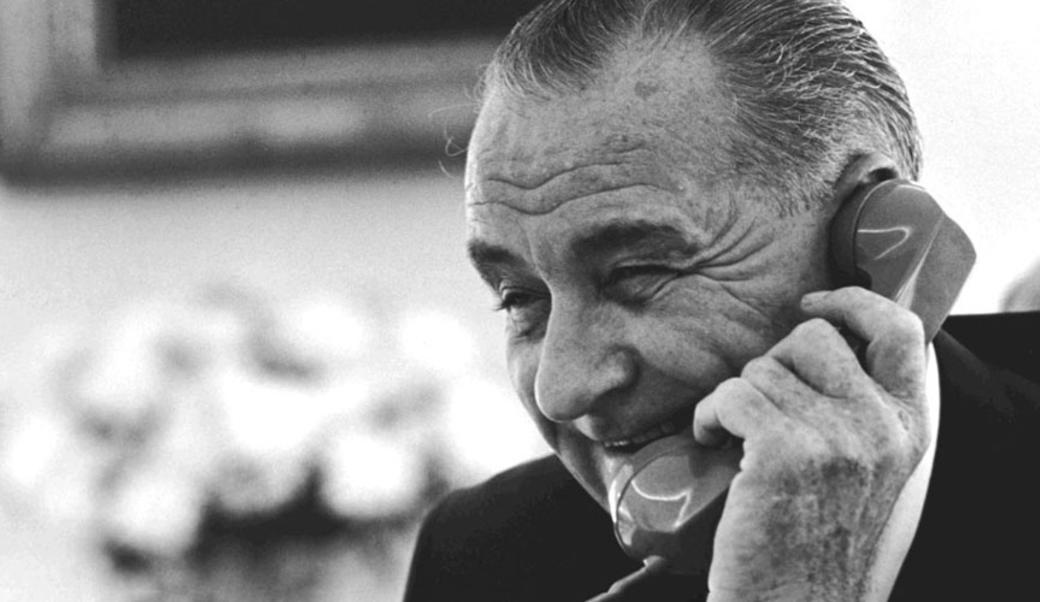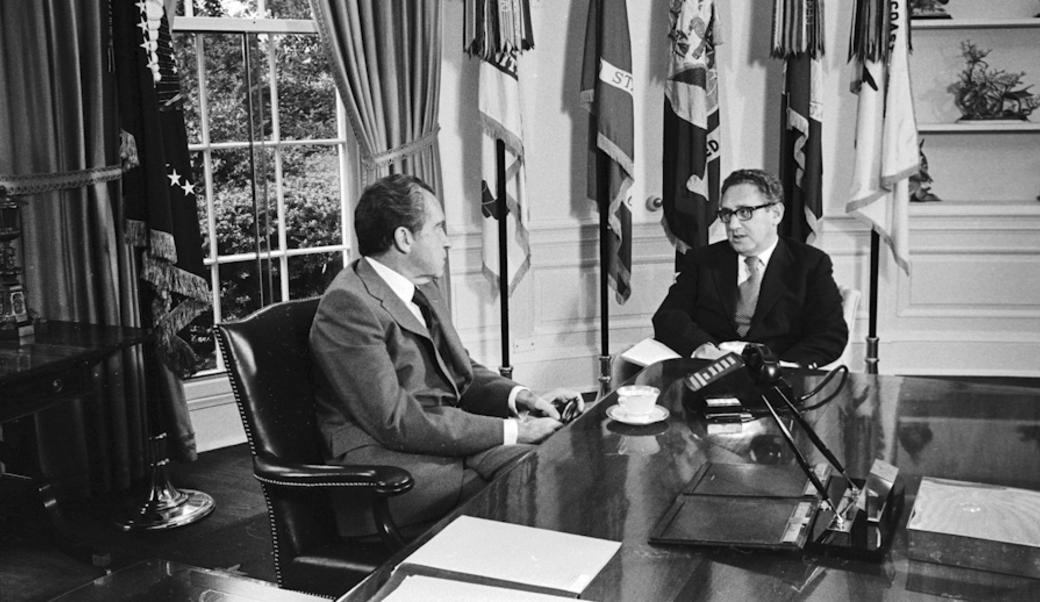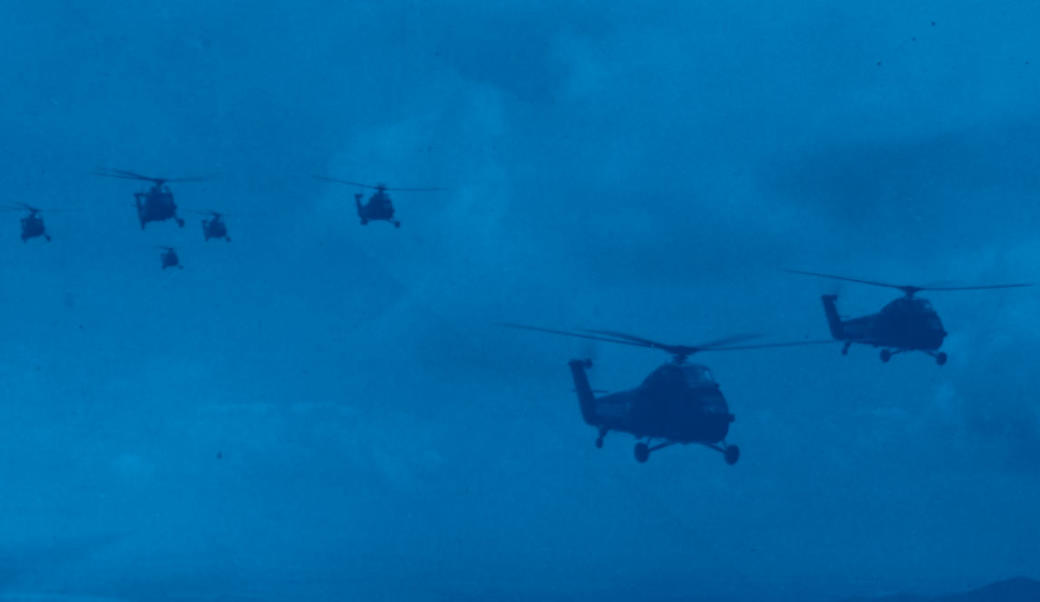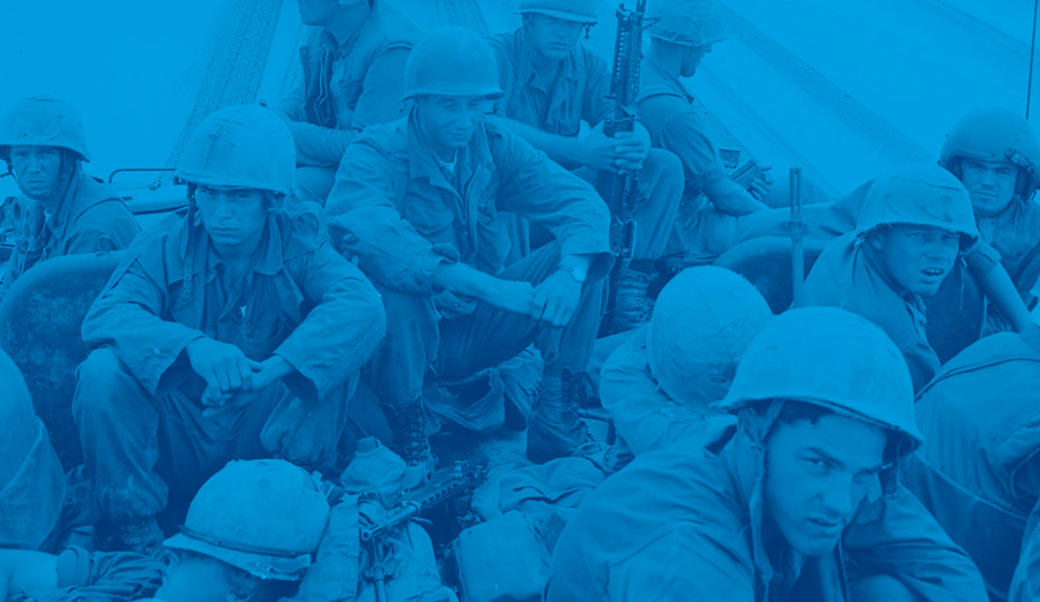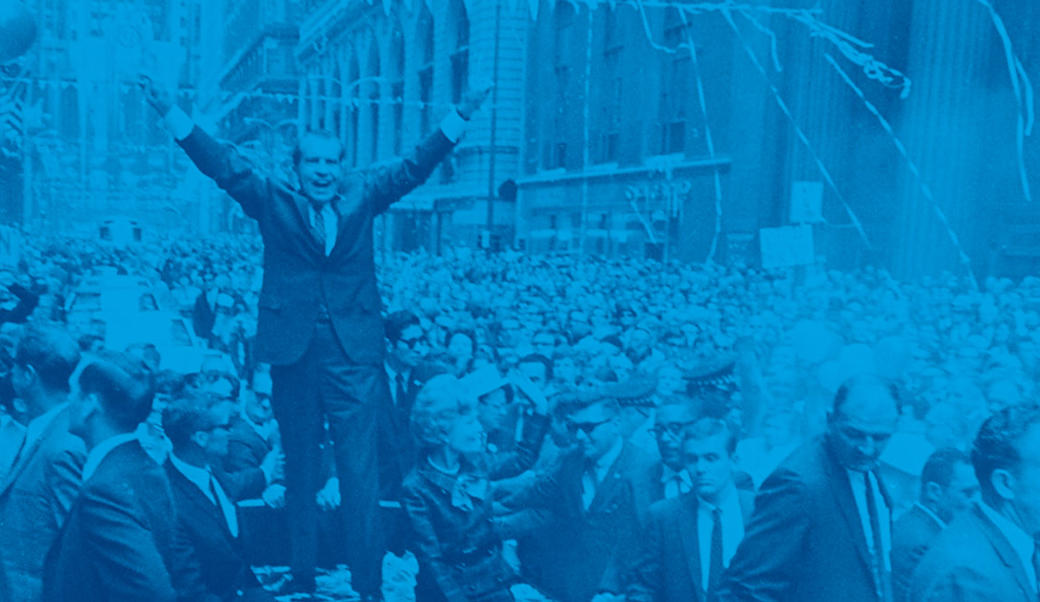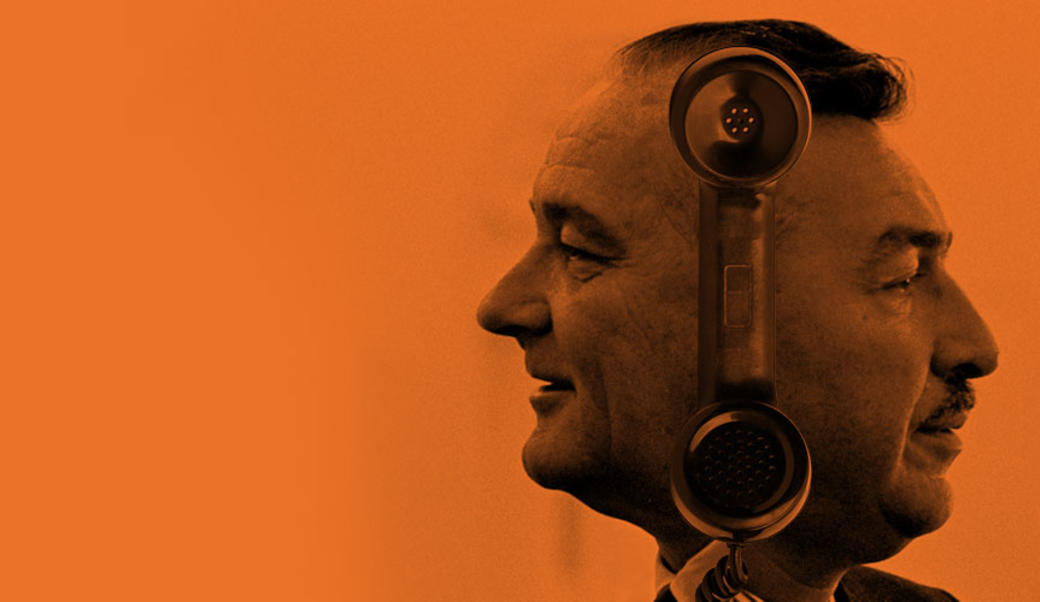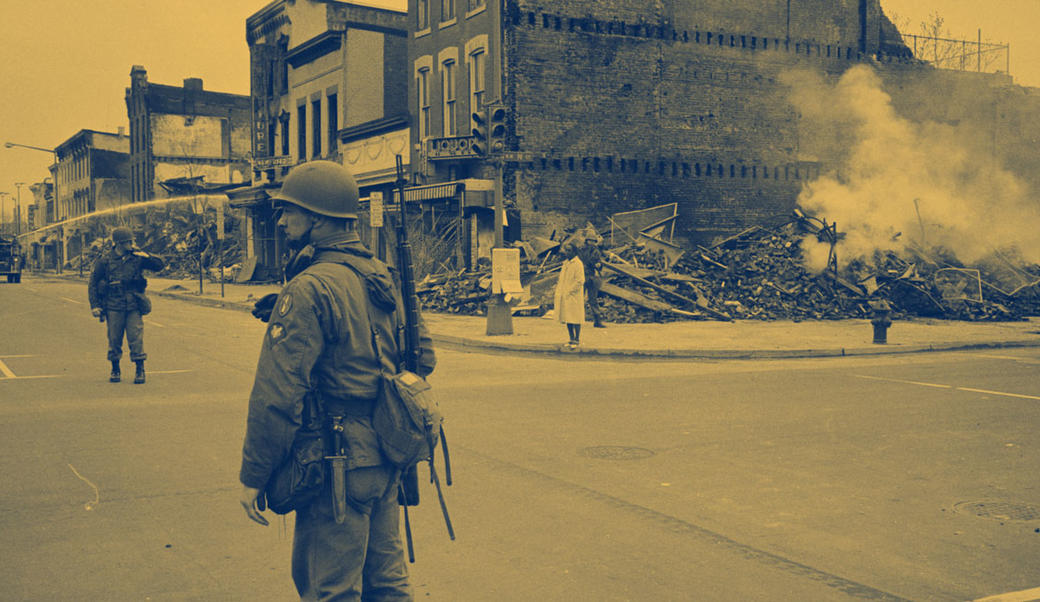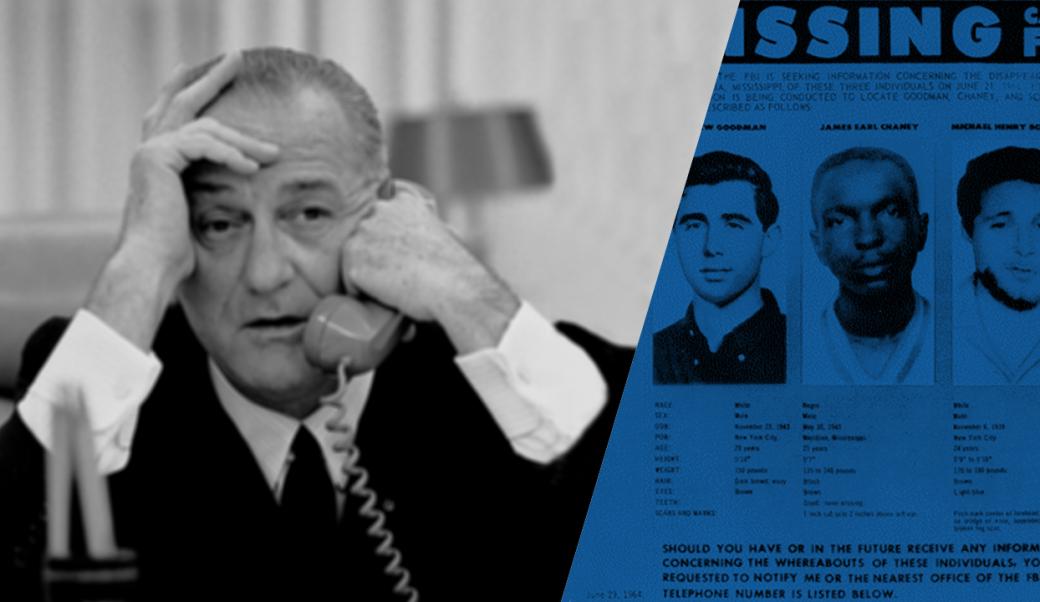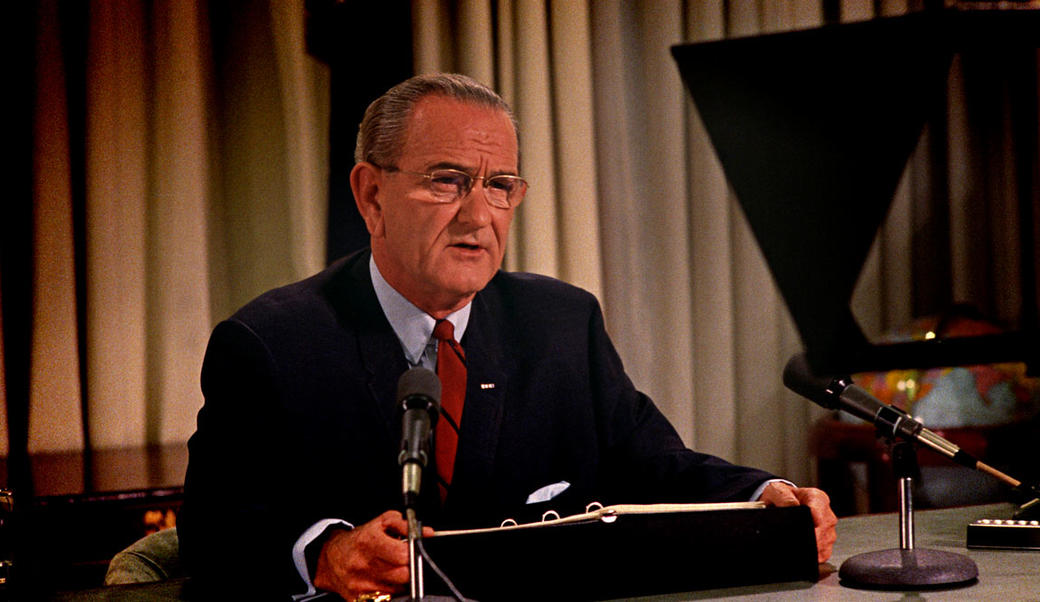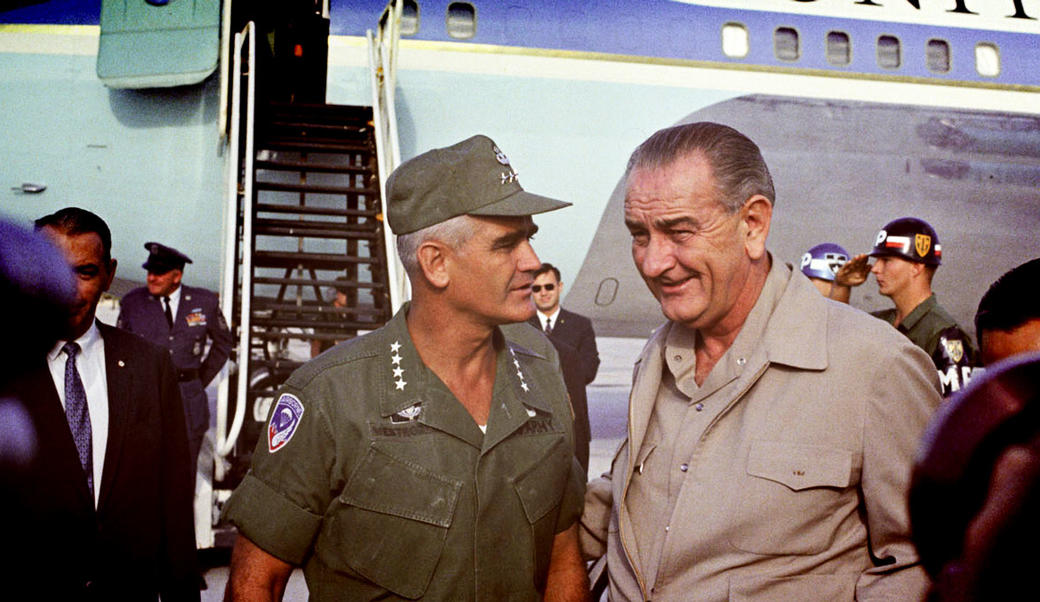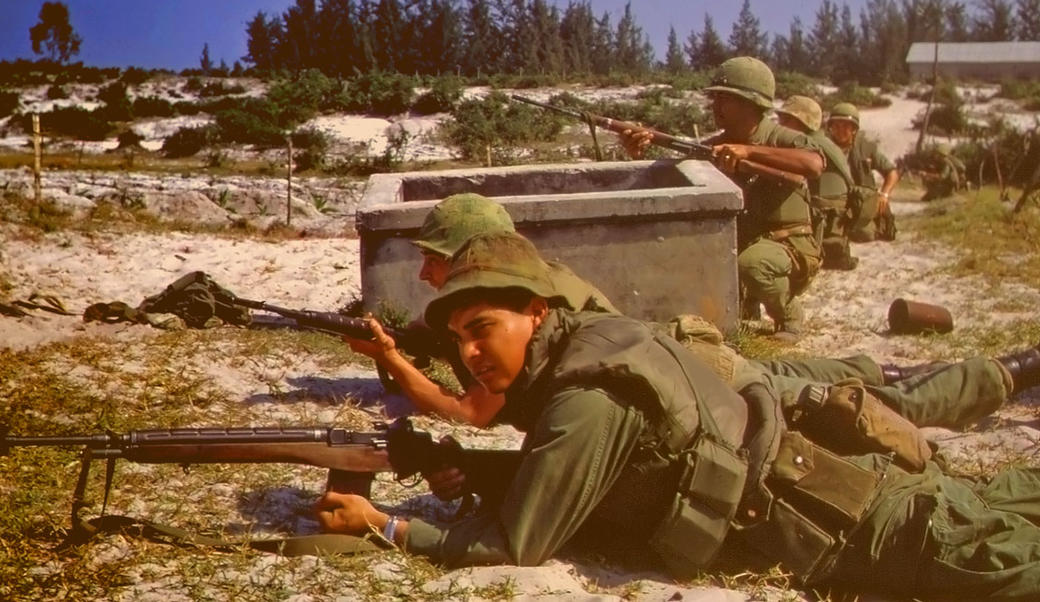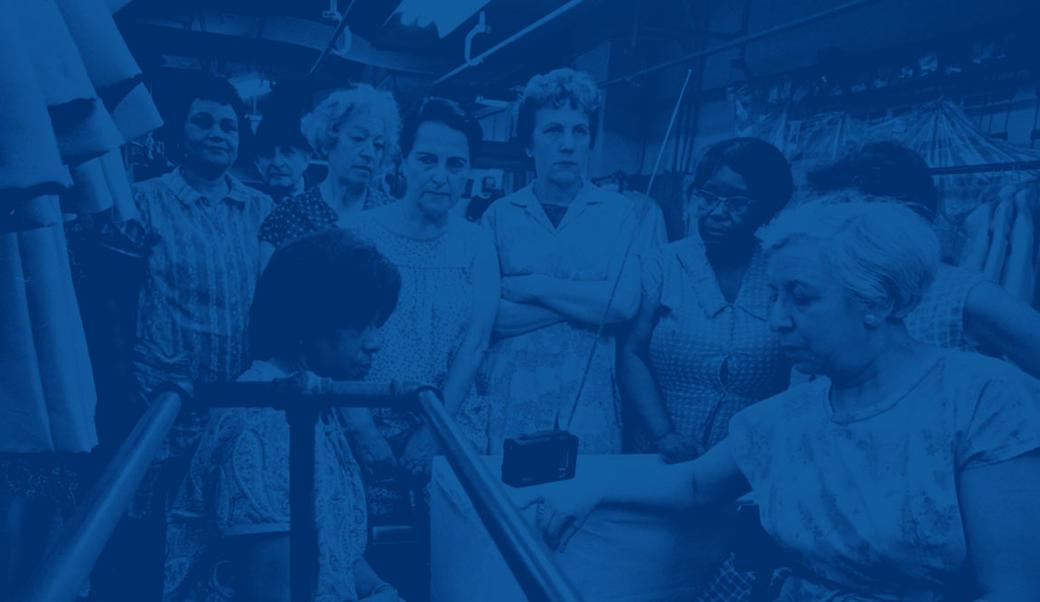Lyndon B. Johnson: Foreign Affairs
The major initiative in the Lyndon Johnson presidency was the Vietnam War. By 1968, the United States had 548,000 troops in Vietnam and had already lost 30,000 Americans there. Johnson's approval ratings had dropped from 70 percent in mid-1965 to below 40 percent by 1967, and with it, his mastery of Congress. "I can't get out, I can't finish it with what I have got. So what the hell do I do?" he lamented to Lady Bird. Johnson never did figure out the answer to that question.
The Vietnam War
The Vietnam War was a conflict between North and South Vietnam, but it had global ramifications. The North was led by a Communist and nationalist regime that had fought against the Japanese in World War II and against French colonial rule in the late 1940s. In 1954, it won control of North Vietnam when the French agreed to a partition in the Geneva Accords. The South was led by a non-Communist regime; after 1956, it was headed by Ngo Dinh Diem. A Catholic, Diem was unable to consolidate his rule with a predominantly Buddhist population. He governed with the support of a military supplied and trained by the United States and with substantial U.S. economic assistance. By the late 1950s, a Communist guerrilla force in the South, the Viet Cong, was fighting to overthrow the Diem regime. By the early 1960s, it was receiving substantial military and logistical assistance from the Communists in the North.
Thus the Vietnam conflict could be seen through three lenses: (1) it was a civil war between pro- and anti-Diem groups in the South; (2) it was a war of reunification waged by the North against the South; and (3) it was viewed by the United States as part of the conspiracy by the Sino-Soviet bloc to conquer the Third World and install Communist regimes. Throughout the conflict, American Presidents were unwilling to see South Vietnam conquered by Communist forces, and thus each of them made the same commitment to forestall a Communist victory. Presidents Truman and Eisenhower had commenced American involvement there by sending military advisers. Kennedy had begun assigning Special Forces military personnel to Vietnam, ostensibly in an advisory capacity as well, and there were about 20,000 there when he was assassinated in 1963.
For Johnson, the decision to continue the Vietnam commitment followed the path of his predecessors. He was committed to maintaining an independent South Vietnam and to achieving success in Southeast Asia. As a senator, he had embraced "containment theory," which predicted that if Vietnam fell to Communists, other Southeast Asian nations would do the same. Johnson was deeply sensitive about the judgment of history, and he did not want to be remembered as a President who lost Southeast Asia to Communism.
When Johnson took office, he affirmed the Kennedy administration's commitments. He quickly approved NSAM 273, a national security agency memorandum, on November 26, 1963, which directed the U.S. government "to assist the people and Government of South Vietnam to win their contest against the externally directed and supported Communist conspiracy." When counterinsurgency failed, Johnson began to escalate U.S. commitments. Johnson approved OPLAN 34A-64 on January 16, 1964, calling for stepped up infiltration and covert operations against the North to be transferred from the Central Intelligence Agency (CIA) to the military. After operation Hop Tac failed to clear Communist guerillas from areas near Saigon, Johnson approved NSAM 288 in late March 1964, calling for more U.S. involvement in South Vietnamese affairs and a greater use of U.S. force, including planning for air strikes against North Vietnam. In August 1964, after reports that U.S. naval vessels had been attacked in the Gulf of Tonkin, Johnson asked Congress for a resolution of support. By a vote of 98 to 2 in the Senate and a unanimous vote in the House, Congress passed the Gulf of Tonkin Resolution, authorizing the President to take all measures necessary to protect the armed forces. Johnson would later use this as a "functional equivalent" to a declaration of war, though his critics would respond that he should have gone to Congress for a formal declaration.
During the summer and fall of 1964, Johnson campaigned on a peace platform and had no intention of escalating the war if it were not absolutely necessary. "Some others are eager to enlarge the conflict," Johnson warned his audiences. "They call upon the U.S. to supply American boys to do the job that Asian boys should do." But the President was full of reassurances: "We are not about to send American boys nine or ten thousand miles away from home to do what Asian boys ought to be doing for themselves," Johnson explained to his audiences. "We don't want to get . . . tied down to a land war in Asia." Even so, Johnson was planning for just that contingency if the situation deteriorated—which it did.
On February 13, 1965, Johnson authorized Rolling Thunder, the sustained bombing of North Vietnam. On March 8, 1965, two Marine battalions, 3,500 troops, went ashore near Da Nang to protect the airfields, with orders to shoot only if shot at—this was the first time U.S. combat forces had been sent to mainland Asia since the Korean War. On April 3, Johnson authorized two additional Marine battalions, one Marine air squadron, and an increase in logistical support units of 20,000 men. He also authorized troops to go on active "search and destroy" missions. By mid-April, Marines had moved to full-scale offensive operations. By November 1965, there were 175,000 troops and by 1966, an additional 100,000. The number would surge to 535,000 by the end of Johnson's presidency.
Johnson's decisions were based on complicated political and military considerations. LBJ steered a middle course: The "hawks" in Congress and in the military wanted him to engage in massive bombing of enemy cities, threaten to use nuclear weapons, and even threaten to invade North Vietnam. This might have led to Chinese entry into the war, as had happened in the Korean War, or even Soviet engagement. "Doves" in Congress, the State Department, and even Vice President Hubert Humphrey wanted Johnson to negotiate with Hanoi for a "neutral" South Vietnam and eventual reunification with the North. The President's "middle way" involved a commitment of U.S. ground forces, designed to convince the regime in Hanoi that it could not win, and some punishing bombing campaigns, after which serious U.S. negotiations might ensue. One of Johnson's major problems was that Hanoi was willing to accept the costs of continuing the war indefinitely and of absorbing the punishing bombing. It would do so until the United States decided to give up its commitment to aid the South. McNamara and his "war game" analysts in the Department of Defense failed to account adequately for this eventuality.
Battles at Home
Fissures began to split American society. As so-called "hawk" and "dove" contingents took to constant, bitter debate over the war, antiwar activists began to demonstrate publicly against their country's involvement in the conflict. Another Democrat, Eugene McCarthy, did something all but unheard of: he announced his intentions to try to wrest the nomination from an incumbent wartime President in the 1968 election.
Six weeks into 1968 came the hammer blow to the Johnson presidency: The North Vietnamese, shrewdly discerning that America was losing heart for the endless bloodletting, staged dozens of near-suicidal attacks all over the South. Known as the Tet Offensive, it held some similarities to the unsuccessful strategy attempted by the Japanese two decades earlier with their kamikaze attacks: inflict great casualties regardless of cost to your own forces, sap enemy morale, and force the dispirited foe to adopt your terms. Only this time, the strategy worked. Despite fearsome losses by the North Vietnamese—nearly 100,000—American opposition to the war surged. Although the North Vietnamese Army was never able to defeat U.S. forces on the battlefields of Vietnam, Hanoi's political strategy defeated America's will to continue to escalate the war. Television screens brought images of endless and seemingly pointless battles to living rooms across the nation. Although Americans still supported the goal of a non-Communist Vietnam, public confidence in the President and Johnson's popularity continued their sharp declines.
Just weeks from the early presidential primaries, Johnson was utterly vilified by those opposing our involvement in Vietnam. LBJ complained to his cabinet that the only place he could give a campaign speech now was on an aircraft carrier. A month after the Tet Offensive came New Hampshire, the site of the first presidential primary: McCarthy ran astoundingly well against the beleaguered President, winning 41 percent of the vote, and John F. Kennedy's brother Robert entered the race as well. A few weeks later, Johnson stunned the nation by announcing that he would not seek another term as President. A terrible spring and summer ensued. The murders of Martin Luther King and Robert Kennedy and a bloody confrontation between police and protesters at the Democratic Convention in Chicago sent shock waves through the nation. Just weeks before the elections, Johnson announced a halt in the bombings of North Vietnam in a desperate attempt to portray his administration as peacemakers. In the fall, Richard Nixon won the presidency, defeating the Democratic nominee, Hubert Humphrey, by claiming he had a "secret plan" to end the conflict. Meanwhile, the war dragged on.
The Vietnam War cut short the promise of the Great Society. Democrats took large losses in the midterm elections of 1966, though they retained majorities in the House and Senate. By late 1966, Johnson could no longer get most of his domestic measures through Congress.
Superpower Diplomacy
Although Johnson's relationship with the Soviets was colored by the Vietnam War, the President nonetheless made some progress on arms control. In January 1967, Johnson signed the Outer Space Treaty with Soviet Premier Aleksei Kosygin, which banned nuclear weapons in earth orbit, on the moon or other planets, or in deep space. In 1968, the U.S. became a party to the Nuclear Non-proliferation Treaty, which prohibits the transfer of nuclear weapons to other nations and the assistance to enable other nations to join the "nuclear club."Johnson was able to defuse one potential nuclear crisis: In 1967, after the Arab-Israeli War, the President met with Soviet Premier Kosygin to sort out conflicting U.S. and Russian interests in the Middle East. The two sides agreed to defuse tensions in the area.
Relations in Latin America
Johnson faced a series of minor crises in Latin America, all of which he handled to maximize U.S. influence in the region. When Fidel Castro, the Cuban Communist dictator, demanded the return of Guantanamo Naval Base and shut off the water to the installation, Johnson had the Navy create its own water supply. The Cubans backed down. And when Panamanians rioted against U.S. control of the Panama Canal Zone, Johnson dealt firmly with the violence, but after it ended, he agreed to negotiations that eventually culminated in the return of the Canal Zone to Panama in 1999.
The blemish on Johnson's record in the region occurred in the Dominican Republic. Johnson backed an unpopular right-wing politician, Reid Cabral, who had taken power over the popularly elected Juan Bosch in 1962. A civil insurrection designed to restore Bosch was quelled when Johnson sent in 20,000 Marines. Later, troops from the Organization of American States replaced the Marines. But Johnson had not simply sent in forces to protect American lives and property, he had done so to quell what he described as "a band of communist conspirators." Johnson had acted to prevent "another Cuba" on the U.S. doorstep. Bosch, although a left-winger, was neither a Communist nor a Castro follower, and the move was highly unpopular in Latin America because of the history of U.S. intervention in the region.
